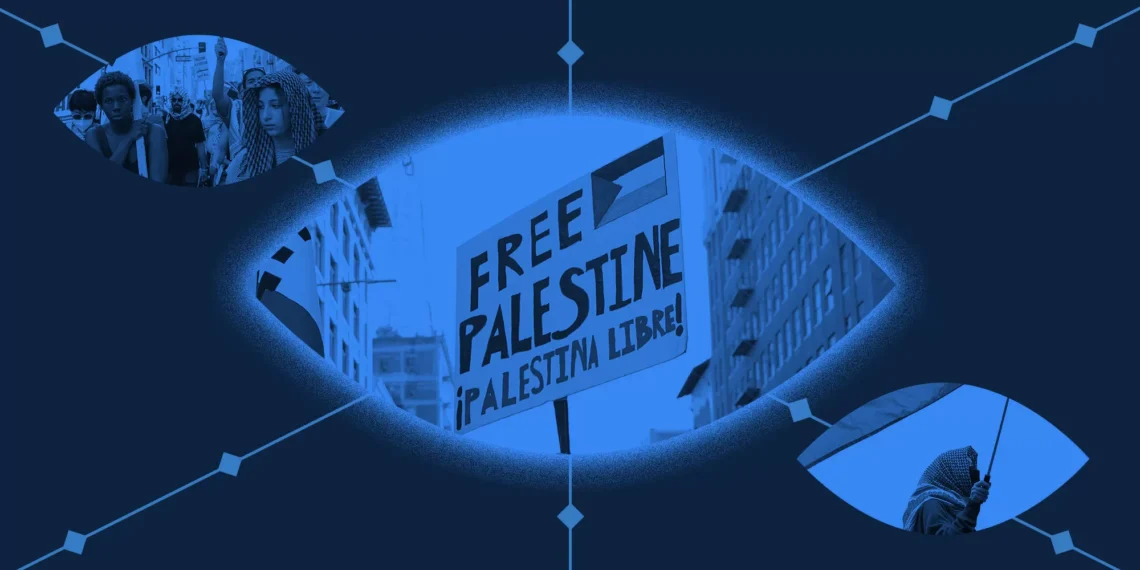The recent protests in Gaza have sparked a global conversation about the ongoing conflict and the need for justice. However, it has come to light that the Los Angeles Police Department (LAPD) has been using a controversial social media monitoring tool to track these protests and other constitutionally protected speech. This revelation has raised concerns about the infringement of civil liberties and the need for transparency in law enforcement practices.
According to police records obtained by The Intercept, Dataminr, a social media monitoring tool, was used by the LAPD to track and monitor Gaza-related protests in the city. This tool, which is often marketed as a way to detect breaking news and emergency situations, has been used by law enforcement agencies for surveillance purposes. The use of such technology raises questions about the potential violation of First Amendment rights and the targeting of peaceful protesters.
The use of Dataminr by the LAPD was first brought to light by the American Civil Liberties Union (ACLU) of Southern California, which obtained the police records through a public records request. The documents revealed that the LAPD used Dataminr to track keywords related to the Gaza protests, such as “Free Palestine” and “Boycott, Divestment and Sanctions (BDS).” This monitoring was done without any specific suspicion of criminal activity, raising concerns about the indiscriminate surveillance of constitutionally protected speech.
The use of social media monitoring tools by law enforcement agencies has become increasingly common in recent years. These tools allow police departments to monitor and collect data from various social media platforms, including Twitter, Facebook, and Instagram. While they claim to use this information for public safety purposes, the lack of oversight and transparency in their use raises concerns about potential abuse of power.
The use of Dataminr by the LAPD is particularly concerning as it specifically targeted protests related to the ongoing conflict in Gaza. This raises questions about the department’s priorities and whether they are using this technology to suppress dissenting voices and stifle free speech. It also highlights the need for clear guidelines and regulations on the use of social media monitoring tools by law enforcement agencies.
In response to the revelations, the LAPD released a statement defending their use of Dataminr, stating that it was used to monitor “publicly available information.” However, this explanation does not address the concerns raised about the potential violation of civil liberties and the targeting of constitutionally protected speech.
The use of Dataminr by the LAPD also brings into question the role of technology in law enforcement and the need for accountability. As technology continues to advance, it is crucial that law enforcement agencies use it responsibly and ethically. This includes clear guidelines and oversight to ensure that these tools are not used to violate the rights of citizens.
The use of Dataminr by the LAPD to track Gaza-related protests is a clear violation of the First Amendment rights of individuals to peacefully assemble and express their opinions. It also raises concerns about the potential targeting of marginalized communities and the need for transparency in law enforcement practices.
In conclusion, the use of social media monitoring tools by law enforcement agencies must be closely monitored and regulated to ensure that they are not used to violate the rights of citizens. The LAPD’s use of Dataminr to track Gaza-related protests is a concerning example of the potential misuse of such technology. It is imperative that steps are taken to protect the rights and freedoms of individuals and ensure that law enforcement practices are transparent and accountable.







